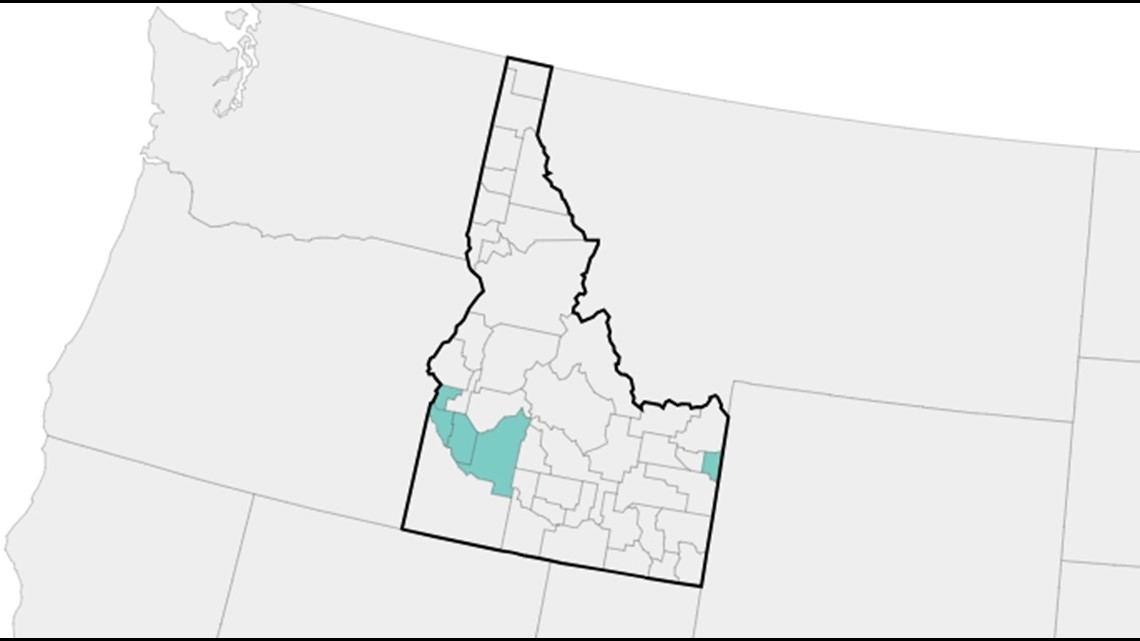Infection
West Nile virus found in 13 areas of Canyon County, up from two in early July
Of the 1,200 mosquito pools tested in Canyon County thus far in the 2023 mosquito season, 21 pools have tested positive for West Nile virus.
CANYON COUNTY, Idaho — West Nile virus has been detected in 13 separate mosquito testing sites in Canyon County – up from two positive cases documented on July 5.
According to a press release from Canyon County, mosquitoes collected by the Canyon County Mosquito Abatement District tested positive in 13 locations, out of 100 locations tested. As of July 27, the district has conducted tests on over 1,200 mosquito pools for the 2023 mosquito season – of which, 21 have tested positive for the virus.
Positive cases fall under three categories:
- Non-human activity: Indicates that veterinary disease cases or infections in mosquitoes, birds, or sentinel animals have been reported to CDC.
- Human infections: Indicates that human disease cases or infections in blood donors have been reported to CDC.
- Human infections and non-human activity: Indicates that both human infections and non-human infections have been reported to CDC.
No date, all cases in Idaho have been categorized as non-human activity.
“Surveillance data suggests virus circulation throughout Canyon County,” said Jim Lunders, Director of Canyon County Mosquito Abatement District. Canyon County officials said the that areas where the positive mosquitoes were collected was treated for both larval and adult mosquitoes – stating that “the district has increased control measures in response to the increased public health threat.”
The two previous positive mosquitoes were found south of Nampa, near Lake Lowell, and at the confluence of the Boise River and Snake River, west of Parma. Canyon County Mosquito Abatement District sets traps at 100 locations throughout Canyon County to monitor and routinely test adult mosquito populations and potential diseases, Lunders explained.
“We the increased risk of West Nile virus it is imperative the public help us reduce the mosquito population by eliminating larval habitat around their homes,” said Lunders.
Suggestions to reduce the risk of exposure to West Nile virus:
- Eliminate or treat all sources of standing water that can be a breeding ground for biting mosquitoes, such as:
- flooded fields
- birdbaths
- wading & swimming pools not in use
- clogged gutters
- old tires.
- if it holds water for 7 days, it can produce mosquitoes.
- Wear repellents while outdoors at dusk and dawn when mosquitoes are most active.
- Wear long-sleeved shirts and long pants when in mosquito-infested areas.
- Use mosquito repellents containing DEET, Oil of Lemon Eucalyptus, Picaridin or 2-undecanone, making sure to follow the directions on the container.
- Make sure all screen doors and windows are in good repair and fit tightly.
- Vaccinate horses for WNv, WEE, and other diseases.
- Use EPA registered residual insect sprays on horses, making sure to follow the directions on the container.
- Have your livestock watering troughs stocked with mosquito fish for free by submitting a service request to CCMAD.
- Notify the District at 208-461-8633 if you have a site that is too large to be eliminated so it can be properly treated.
See the latest news from around the Treasure Valley and the Gem State in our YouTube playlist:
https://youtube.com/watch?v=videoseries&list=PLggbABFJJpUD5fI-IlhqklBTFJbW9jkWo
HERE ARE MORE WAYS TO GET NEWS FROM KTVB:
Download the KTVB News Mobile App
Apple iOS: Click here to download
Google Play: Click here to download
Watch news reports for FREE on YouTube: KTVB YouTube channel
Stream Live for FREE on ROKU: Add the channel from the ROKU store or by searching ‘KTVB’.
Stream Live for FREE on FIRE TV: Search ‘KTVB’ and click ‘Get’ to download.

